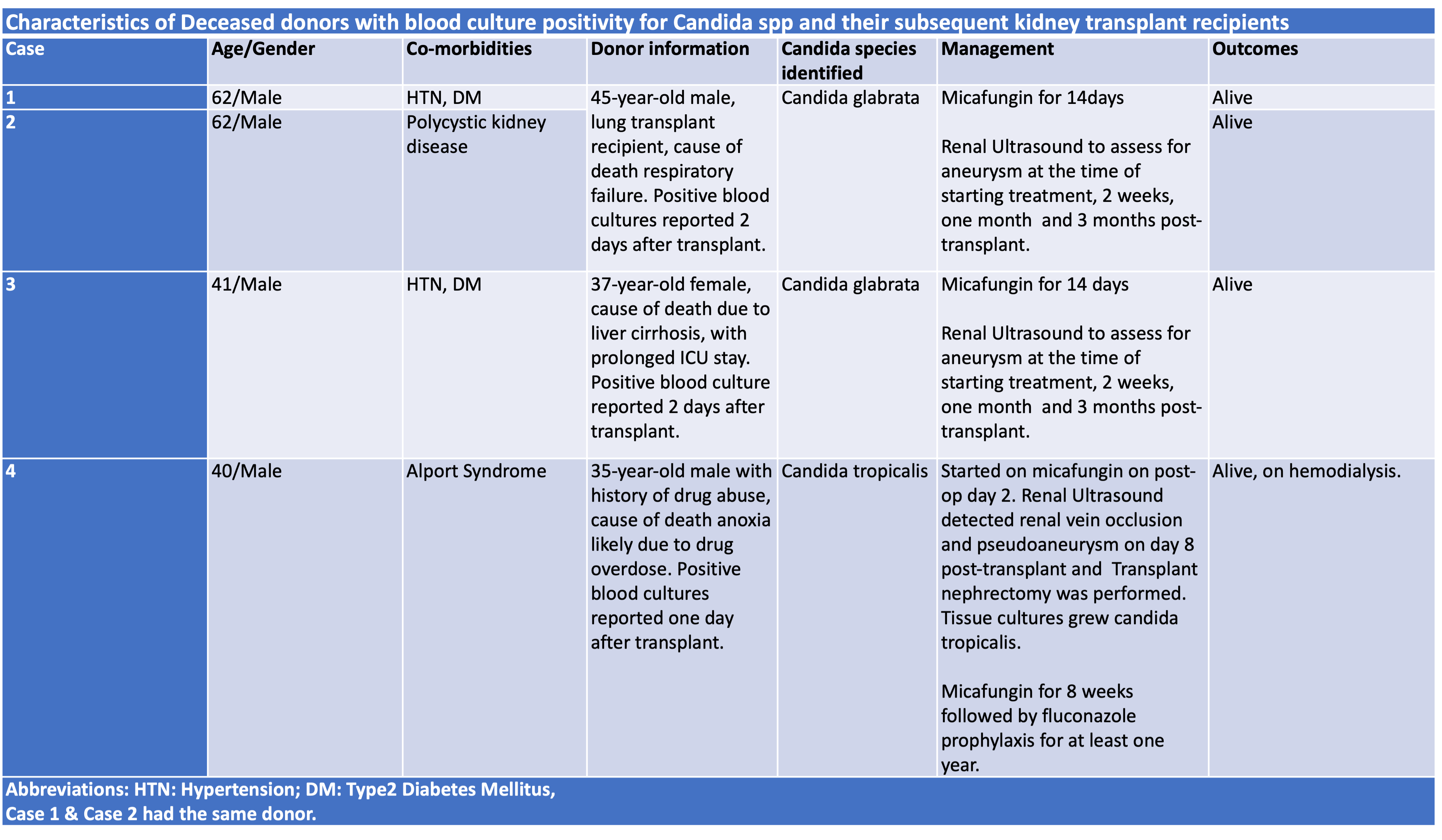Outcomes of donor candidemia in kidney transplant recipients: A single center experience
Shweta Anjan1, Jacques Simkins1, Gaetano Ciancio1, Yoichiro Natori1, Giselle Guerra1.
1Miami Transplant Institute , Miami, FL, United States
Background: Donor derived infections are associated with significant morbidity and mortality in solid organ transplant recipients. Candidemia can cause arteritis and renal vasculature aneurysms. The OPTN currently does not include candida as a pathogen of special interest. Data on outcomes with donor blood cultures with Candida spp remain limited.
Methods: This is a single center, retrospective study of adult kidney transplant recipients with donor blood cultures positive for Candida spp. At our center, all deceased donor organ transplant recipients are evaluated by the transplant infectious diseases team to assess for donor derived infections which includes a thorough review of all available donor data and cultures in DonorNet.
Results: Between May 1st 2022 to May 1st 2023, our center conducted 370 isolated deceased donor kidney transplants. Four kidney transplant recipients (1.08%) who received organs from a Candidemic donor were identified (Figure). Positive donor blood culture information was not available at the time of organ offer. As per protocol, all recipients were evaluated within 24 hours of transplant and started on appropriate anti-fungal treatment. In all cases, surveillance blood cultures were conducted for early detection of fungemia. Three patients received anti-fungal therapy for 14 days with no further complications. However, one patient developed early graft failure with detection of aneurysm necessitating transplant nephrectomy.
Conclusion: Donor fungemia can result in life-threatening complications like arteritis and renal vasculature aneurysms. The OPTN must consider including Candida as a pathogen of special interest compelling organ procurement organizations (OPOs) to communicate this information with transplant centers in a timely manner.
